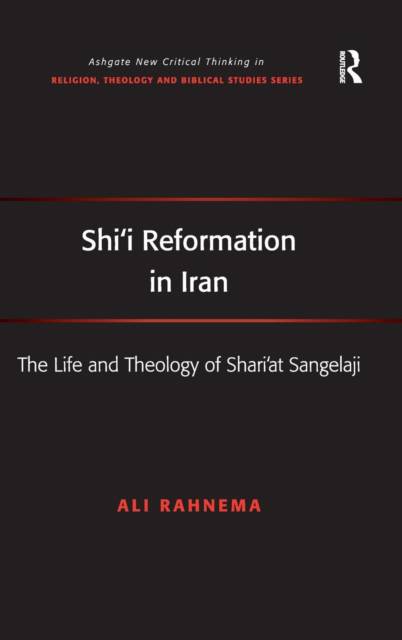
Je cadeautjes zeker op tijd in huis hebben voor de feestdagen? Kom langs in onze winkels en vind het perfecte geschenk!
- Afhalen na 1 uur in een winkel met voorraad
- Gratis thuislevering in België vanaf € 30
- Ruim aanbod met 7 miljoen producten
Je cadeautjes zeker op tijd in huis hebben voor de feestdagen? Kom langs in onze winkels en vind het perfecte geschenk!
- Afhalen na 1 uur in een winkel met voorraad
- Gratis thuislevering in België vanaf € 30
- Ruim aanbod met 7 miljoen producten
Zoeken
€ 290,45
+ 580 punten
Uitvoering
Omschrijving
Shi 'ism caught the attention of the world as Iran experienced her revolution in 1979 and was subsequently cast in the mold of a monolithic discourse of radical political Islam. The spokespersons of Shi'i Islam, in or out of power, have not been the sole representatives of the faith. Nonconformist and uncompromising, the Shi'i jurist and reformist Shari'at Sangelaji (1891-1944) challenged certain popular Shi'i beliefs and the mainstream clerical establishment, guarding and propagating it. In Shi'i Reformation in Iran, Ali Rahnema offers a fresh understanding of Sangelaji's reformist discourse from a theological standpoint, and takes readers into the heart of the key religious debates in Iran in the 1940s. Exploring Sangelaji's life, theological position and disputations, Rahnema demonstrates that far from being change resistant, debates around why and how to reform the faith have long been at the heart of Shi'i Islam. Drawing on the writings and sermons of Sangelaji, as well as interviews with his son, the book provides a detailed and comprehensive introduction to the reformist's ideas. As such it offers scholars of religion and Middle Eastern politics alike a penetrating insight into the impact that these ideas have had on Shi'ism - an impact which is still felt today.
Specificaties
Betrokkenen
- Auteur(s):
- Uitgeverij:
Inhoud
- Aantal bladzijden:
- 194
- Taal:
- Engels
- Reeks:
Eigenschappen
- Productcode (EAN):
- 9781472434166
- Verschijningsdatum:
- 18/03/2016
- Uitvoering:
- Hardcover
- Formaat:
- Genaaid
- Afmetingen:
- 156 mm x 234 mm
- Gewicht:
- 453 g

Alleen bij Standaard Boekhandel
+ 580 punten op je klantenkaart van Standaard Boekhandel
Beoordelingen
We publiceren alleen reviews die voldoen aan de voorwaarden voor reviews. Bekijk onze voorwaarden voor reviews.









